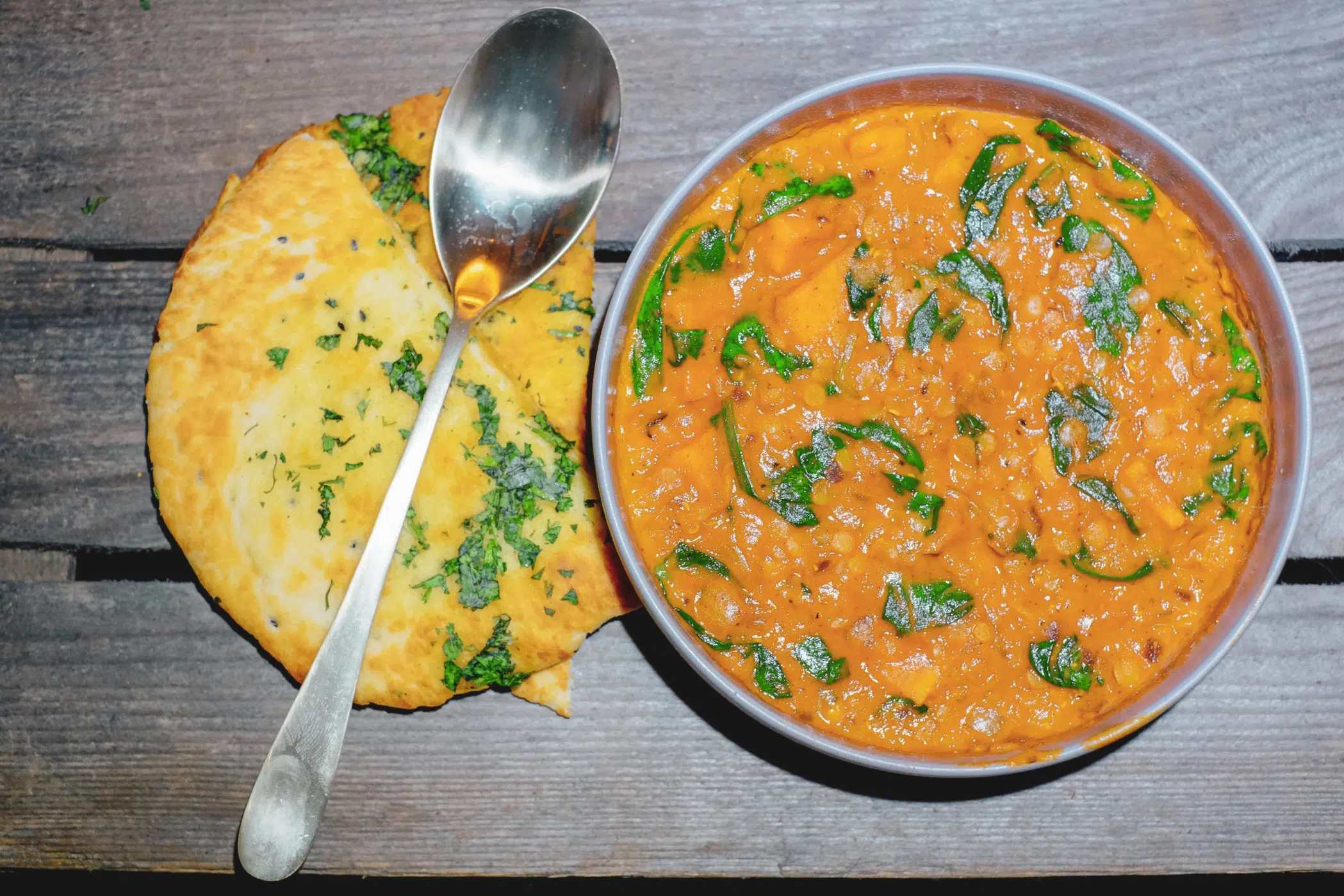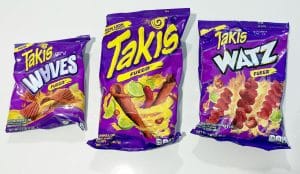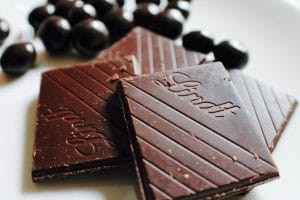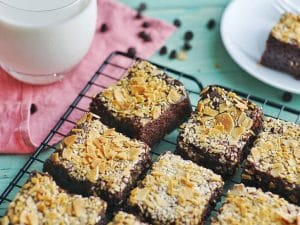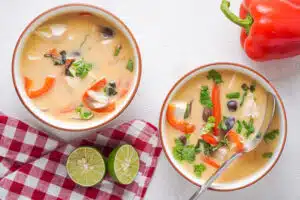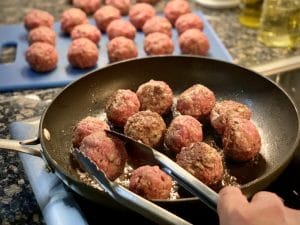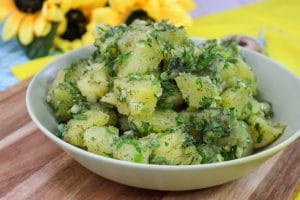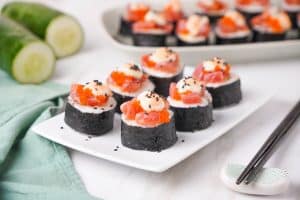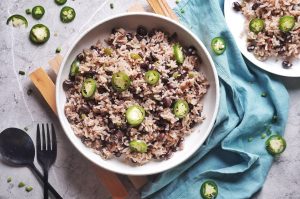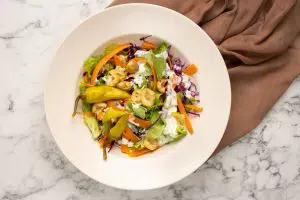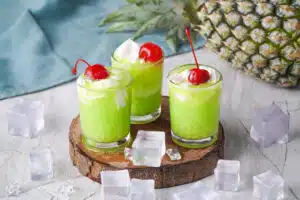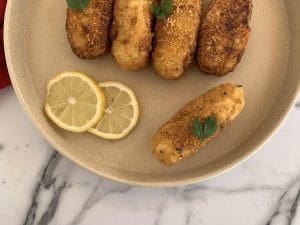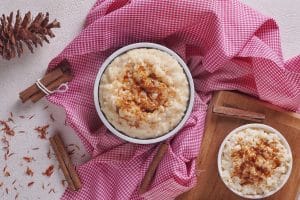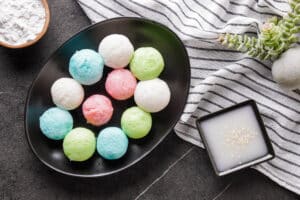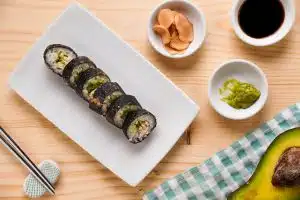Is Vegan Curry Healthy?
Important Note: When you buy through our links, we may earn a commission. As an Amazon Associate we earn from qualifying purchases. Content, pricing, offers and availability are subject to change at any time - more info.
There are some disagreements regarding the healthiness of curry. The spicy food is known to cause some bowel issues, but it also has a lot of beneficial qualities, as well. So when the topic of vegan curry came up, we assumed many of the same arguments would arise.
But because vegan curry is a plant-based dish, surely it’s a lot healthier than its animal-based counterpart, right? That’s precisely what we set out to learn. In this guide, we take a deep dive into the world of curry to see what all the fuss is about.
What Is Curry?
Believe it or not, curry is more of a catch-all term used to describe foods that don’t have any official designation. The word “curry” is still widely used is restaurants and products, however, so it does have a general definition.
Today, curry is mainly used to describe a dish or a spice powder. A curry dish doesn’t have to have the same ingredients, either. There are many variations of curry that hail from different parts of the world, thereby featuring ingredients that are popular in each respective region.
For example, you can find curry in India, Malaysia, Japan, Thailand, China, South Africa, and a wide variety of other locales. Even if you were to eat curry from one country, but each dish was made by someone else, it’s very unlikely that the dishes would be the same.
That’s because most curry is dependent on the cook’s personal preferences and what kind of ingredients are readily available. It’s worth noting that while curry preparation does have some fundamental rules, the vast majority of them can be broken at will.
The most popular curries are Thai and Indian. Thai curry usually requires wet curry paste and uses coconut milk or coconut milk. You will see herbs and spices such as lemongrass, galangal, and lime leaves.
Indian curry is generally considered to be a British fusion dish, usually roasted spices mixed into a powder, called masala. These curries are based on water or broth and sometimes use sour cream or yogurt to thicken the curry.
And while curry from other regions can vary in ingredients, there are a few main dishes that cooks try to adhere to, however vaguely. Let’s look at a few curry creations to give you a better understanding of what they entail.
Curry Powder
Often present in Indian cooking, curry powder is a combination of dry spices mixed together. Please be aware that many curry powders you buy from stores are made with dated spices that have since lost some texture and taste.
As such, you should use more traditional spice mixtures or whole spices whenever possible. If you have no choice but to buy curry powder, try to use it as soon as you can. The sooner you use it, the fresher it will be, and the better it will taste.
Curry Paste
Curry pastes from Southeast Asia are often made up of fresh ingredients, such as ginger, lemongrass, chilies, galangal, or other herbs. These ingredients get ground together to form a thick sauce. Such pastes are typically used in dishes from Southeast Asia.
It’s there that they sizzle their dishes with oil to help promote their aroma before diluting with something like coconut milk. This is done to create a soup base or sauce.
Curry Roux Cubes
These curry cubes are often found in Japanese cuisine and resemble broths. They are a concentrated spice and umami flavor that is released when mixed with liquids. These cubes tend to produce a thicker, mild, and sweet sauce.
What Is Vegan Curry?
Rather than make curry with animal products, vegan curry uses plant-based ingredients. Some common ingredients found in vegan curry include:
- Butternut squash
- Sweet potato
- Runner bean
- Kidney bean
- Mushroom
- Black bean
- Lentil dhal
- Aubergine
- Aloo gobi
- Chickpea
- Spinach
- Tomato
- Potato
As you can see, there is a wide variety of plant-based ingredients that you can use to create your own vegan curry recipes. And just like traditional curry, there isn’t a definitive rule that says all curry must be made the same way.
So, Is Vegan Curry Healthy?
Well, it all comes down to what you put in your vegan curry recipes. For the most part, however, vegan curry is a healthy dish at its core. But you can make it lean more toward unhealthy if you add ingredients that aren’t good for you.
The vast majority of vegan curry ingredients come with many health benefits, so you really have to try to make it unhealthy. But given that curry is such a versatile dish that has no strict parameters, you could easily stray into unhealthy territory if you don’t pay attention to what you’re putting in your recipe.
For best results, search for some popular vegan curry recipes online. Most vegans will only add ingredients that are good for the body, so you shouldn’t have to worry too much about making vegan curry dishes that aren’t healthy.
On that note, don’t be afraid to experiment with your own vegan curry recipes. If you already have some favorite vegan ingredients that you like to eat, see how compatible they are with vegan curry dishes. Many people like to use coriander, chili peppers, cumin, ginger, mustard seeds, and turmeric.
With these ingredients, you can look forward to health benefits like:
- Lower blood sugar
- Digestive health
- Heart health
- And more
Now those are benefits worth getting excited about!
Is Vegan Curry a Good Choice for Vegans?
Absolutely. With the right ingredients, you can get a lot of health benefits from vegan curry. The nice thing about vegan curry (and curry in general) is that there’s plenty of room for experimentation and creativity.
As such, you can make your vegan curry as healthy as you like based on the ingredients you use. So have fun with it and see what you can come up with.
Need some ideas about what to put in your vegan curry? Head on over to our food substitutes page for vegan-friendly alternatives to popular ingredients.
